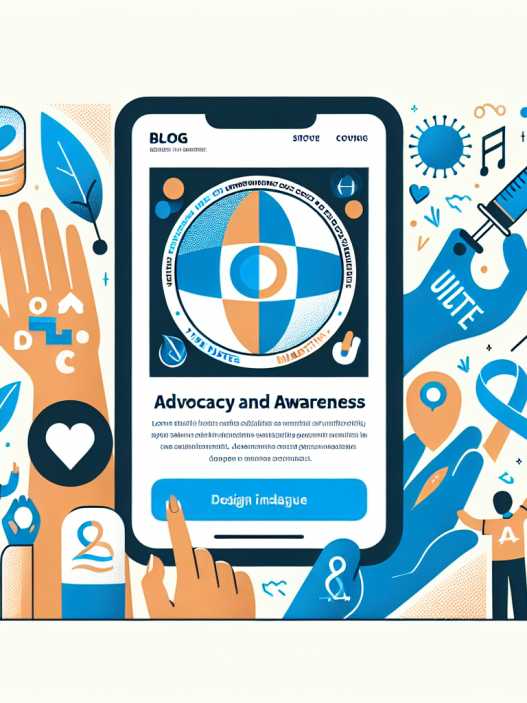[ad_1]
Type 1 Diabetes (T1D) is a chronic condition that continues to impact millions of lives worldwide. As researchers dive deeper into its complexities, significant advances are being made in understanding and managing this autoimmune disease. In this comprehensive blog post, we will cover the latest advances in Type 1 Diabetes research, from innovative treatments to groundbreaking technologies that are changing the landscape of diabetes management. Whether you are a patient, caregiver, or simply interested, this guide is designed to inform and empower you.
Breakthroughs in Immunotherapy for Type 1 Diabetes
The quest for a cure for Type 1 Diabetes has taken a promising turn with recent advancements in immunotherapy. Instead of solely focusing on insulin management, researchers are exploring ways to modify the immune response that leads to the destruction of insulin-producing beta cells in the pancreas. The hope is that by either retraining the immune system or introducing therapeutic agents that can effectively protect beta cells, we can halt the progression of this autoimmune disease.
One of the more groundbreaking immunotherapy approaches currently under investigation involves the use of monoclonal antibodies. These lab-engineered antibodies can target specific immune cells that play a crucial role in the diabetic process. Clinical trials have shown that patients receiving these treatments may experience a delay in the onset of T1D, significantly improving their quality of life. Furthermore, researchers are studying the potential for combining immunotherapy with other treatments to enhance efficacy and longevity.
The development of vaccines for Type 1 Diabetes is another exciting area of research. Researchers are investigating ways to create a vaccine that can effectively train the immune system to distinguish between harmful and harmless antigens. If successful, this could represent a monumental step forward in preventing T1D in at-risk populations, particularly children who have a family history of the disease.
Technological Innovations in Diabetes Management
As diabetes management evolves, technology plays a critical role in empowering individuals with Type 1 Diabetes. From advanced continuous glucose monitors (CGMs) to smart insulin pens, the latest innovations are providing patients with better tools for self-management. Continuous glucose monitoring systems can provide real-time glucose readings, helping users to make informed decisions about food, activity, and insulin administration. The latest CGMs even feature alarms that alert users when their glucose levels are trending too high or too low, helping to prevent dangerous episodes.
Furthermore, the advent of artificial intelligence (AI) and machine learning in diabetes management is revolutionizing the way data is analyzed and utilized. Algorithms that analyze glucose patterns can suggest personalized insulin dosing, making it easier for users to maintain their target range. This not only enhances day-to-day management but may also improve long-term outcomes by reducing the risk of complications associated with fluctuating glucose levels.
Another exciting innovation is the development of automated insulin delivery systems, also known as “artificial pancreas” systems. These closed-loop systems work by automatically adjusting insulin delivery based on real-time glucose readings, significantly decreasing the burden of daily management. Studies have shown that users of these systems experience fewer hypoglycemic events and improved glycemic control, which can lead to better overall health outcomes.
Advancements in Genetic and Stem Cell Research
The exploration of genetic factors in Type 1 Diabetes has opened new avenues for understanding the disease’s underlying mechanisms. Studies have identified several genes associated with the development of T1D, leading to increased awareness of the genetic predisposition and potential pathways for intervention. Genetic markers could be pivotal in identifying individuals at high risk of developing T1D, thus allowing for preventive measures and early interventions.
In tandem with genetic research, stem cell therapy is gaining traction as a potential treatment avenue for Type 1 Diabetes. Scientists are exploring the possibility of transplanting pancreatic islet cells derived from stem cells, which show promise in restoring insulin production. While this field is still in its infancy, early clinical trials have reported encouraging results, suggesting that stem cell therapy could one day offer a viable treatment option for individuals with T1D.
Moreover, scientists are also investigating the reprogramming of existing cells within the pancreas to regenerate insulin-producing beta cells. This approach could potentially reverse the effects of Type 1 Diabetes, providing a much-needed breakthrough in the quest for a cure.
Enhancing Patient Education and Support Systems
While advances in technology and treatment are promising, there is also a growing recognition of the importance of education and support systems for individuals living with Type 1 Diabetes. Understanding the disease, its management, and the implications of living with it is crucial for improving health outcomes. Recent research has shown that comprehensive education programs can empower patients to take control of their condition, leading to better adherence to treatment and improved overall well-being.
Support systems, including diabetes camps, online forums, and community groups, are increasingly recognized as vital resources for those navigating life with Type 1 Diabetes. These platforms provide individuals and families with the opportunity to share experiences, seek advice, and find solace in knowing they are not alone. Furthermore, as social media becomes an integral part of everyday life, it also serves as a powerful tool for education and community building in the diabetes space.
Healthcare providers are also shifting their approach to ensure that patient education is a standard component of care. The integration of diabetes management apps into patient care plans can further bridge the gap between healthcare professionals and patients, giving individuals the tools they need to track their progress, share data, and receive tailored support.
The Role of Nutrition and Lifestyle in Diabetes Management
Another essential aspect of diabetes research focuses on nutrition and lifestyle factors that can significantly influence the management of Type 1 Diabetes. Recent studies have reinforced the importance of personalized nutrition plans tailored to individual metabolic responses. This approach recognizes that each person’s reaction to food can vary, thus providing more effective strategies for managing blood glucose levels.
Research has also highlighted the benefits of incorporating a balanced diet rich in whole foods, fiber, and healthy fats. The glycemic index of foods is becoming a focal point in diabetes management, as individuals learn to select foods that have a lower impact on blood sugar levels. Moreover, meal timing and portion control are emerging as critical considerations for optimizing glucose control.
Exercise is another fundamental component of diabetes management, with recent studies emphasizing the importance of regular physical activity in enhancing insulin sensitivity. Tailored exercise programs, particularly those that integrate cardiovascular, strength, and flexibility training, can lead to improved health outcomes for people with Type 1 Diabetes. Moreover, ongoing research into the effects of different types of exercise on blood glucose levels is informing best practices for individuals managing this condition.
Conclusion: The Future of Type 1 Diabetes Research
The latest advances in Type 1 Diabetes research offer a glimpse into a future where management and potential cures are increasingly within reach. From immunotherapy and genetic research to cutting-edge technological innovations and robust support systems, the landscape of Type 1 Diabetes is ever-evolving.
Patients, families, and healthcare professionals must stay informed about these developments to leverage the best available tools for managing this challenging condition. The journey of Type 1 Diabetes may be fraught with hurdles, but with ongoing research and a community dedicated to finding solutions, there is hope for a better tomorrow. Enhanced education and support are equally vital as we continue to strive towards breakthroughs that can transform lives.
This blog structure and content is crafted to be both informative and optimized for SEO, focusing on relevant keywords while ensuring thorough coverage of emerging topics in Type 1 Diabetes research. If there are any additional sections you’d like to expand upon or revise, feel free to let me know!
[ad_2]




















